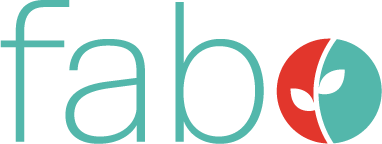Lessons learnt from DCA's New Gender Course
The importance of Learner Profiles & Feedback Loops
In May 2024, DCA launched new Gender courses on the Fabo platform. The learning sites were developed in cooperation with Fabo Learning Lab and Kira Ugaz-Simonsen, DCA Senior Advisor on Gender Equality.
In the rapidly evolving field of gender responsive programming, creating effective and comprehensive learning content is both a challenge and a necessity. DCA recently embarked on the ambitious project of developing a new gender course for its onboarding programme. After several rounds of rigorous feedback and testing, the course creators realized that they needed to divide the course into two distinct levels: basic and advanced. This decision underscores the critical importance of identifying target learner profiles and utilizing feedback loops in the development of any learning content.

Understanding Learner Profiles
One of the foundational steps in creating learning material is understanding who the learners are. Initially, DCA aimed to design a one-size-fits-all course that would cater to both novices and those with advanced knowledge in gender studies. However, it soon became apparent that the varying levels of understanding among potential learners required a more tailored approach.
Through four focus groups, and pilot testing, DCA identified two primary learner profiles:
- Basic Learners: Individuals with little to no prior knowledge of the integration of gender equality in their work and with job descriptions that do not relate directly to programming. These learners required foundational concepts and terminology to grasp the subject matter.
- Advanced Learners: Individuals with some background in gender responsiveness, looking for more advanced approaches to quality gender integration in their work and practical examples to apply the learning in programming.

“Recognizing these distinct profiles was pivotal. It allowed us to design content that was relevant and appropriately challenging for each group, thereby enhancing the learning experience.”
Kira Ugaz-Simonsen, DCA Senior Advisor Gender Equality

The Feedback Loop: A Cycle of Improvement
The initial rounds of tests highlighted significant discrepancies in how different learners engaged with the content. Basic learners found the material too complex and overwhelming, while expert learners felt that the content lacked depth and sophistication. This disparity underscored the need for a robust feedback loop—a process where feedback is continuously gathered, analysed, and implemented to refine the course.
DCA Learning Lab employed a feedback loop that included:
- Gathering data about learners: Collecting data about potential learners can be done by conducting interviews, focus groups, or systematic observation.
- Pilot Sessions: To test the course content with a small, diverse group of learners from both basic and advanced backgrounds.
- Feedback Forms: to collect detailed insights on the learners’ experiences and difficulties.
- Working Groups: Facilitated discussions to dive deeper into the feedback and understand the nuances behind the learners' experiences.
Each round of feedback was meticulously analysed and used to make iterative improvements to the course content. This process not only improved the quality of the course but also ensured that it met the specific needs of its diverse audience.

Dividing the Course: A Strategic Move
The decision to split the course into basic and expert levels was a strategic move that emerged from the feedback loop. By doing so, DCA was able to create more focused and effective learning experiences.
- Basic Course: This course covers essential concepts, terminologies, and data on gender inequality, providing a solid foundation for beginners. It further exemplifies how gender can be mainstreamed into non-programmatic work areas such as communication and HR. It employs simplified language, clear examples, and interactive activities to engage learners and build their confidence.
- Advanced Course: This advanced course also covers essential concepts, terminologies and data on gender inequality, adding more details and background to these and provides in-depth approaches to integrating gender considerations in programming, through for example gender analysis, quality gender mainstreaming and gender transformative approaches. It is designed to provide programmatic staff with enhanced knowledge of key gender considerations and to encourage them to apply their knowledge in practical and analytical ways.
The Broader Implications
The experience of developing DCA’s gender course offers valuable lessons for all learning content creators. It highlights the importance of:
- Identifying Learner Profiles: Understanding the backgrounds, needs, and expectations of learners is crucial for designing relevant and effective content.
- Implementing Feedback Loops: Continuous feedback and iterative improvements ensure that the course evolves to meet the learners' needs.
- Flexibility in Design: Being open to restructuring or dividing content can lead to more effective learning outcomes.
In conclusion, the development of DCA's new gender course exemplifies the importance of a learner-centered approach in learning content creation. By identifying learner profiles and utilizing a robust feedback loop, learning organisations can create more impactful and engaging learning experiences. This approach not only enhances learner satisfaction but also ensures that learning content remains relevant and effective in a diverse and ever-changing landscape.

